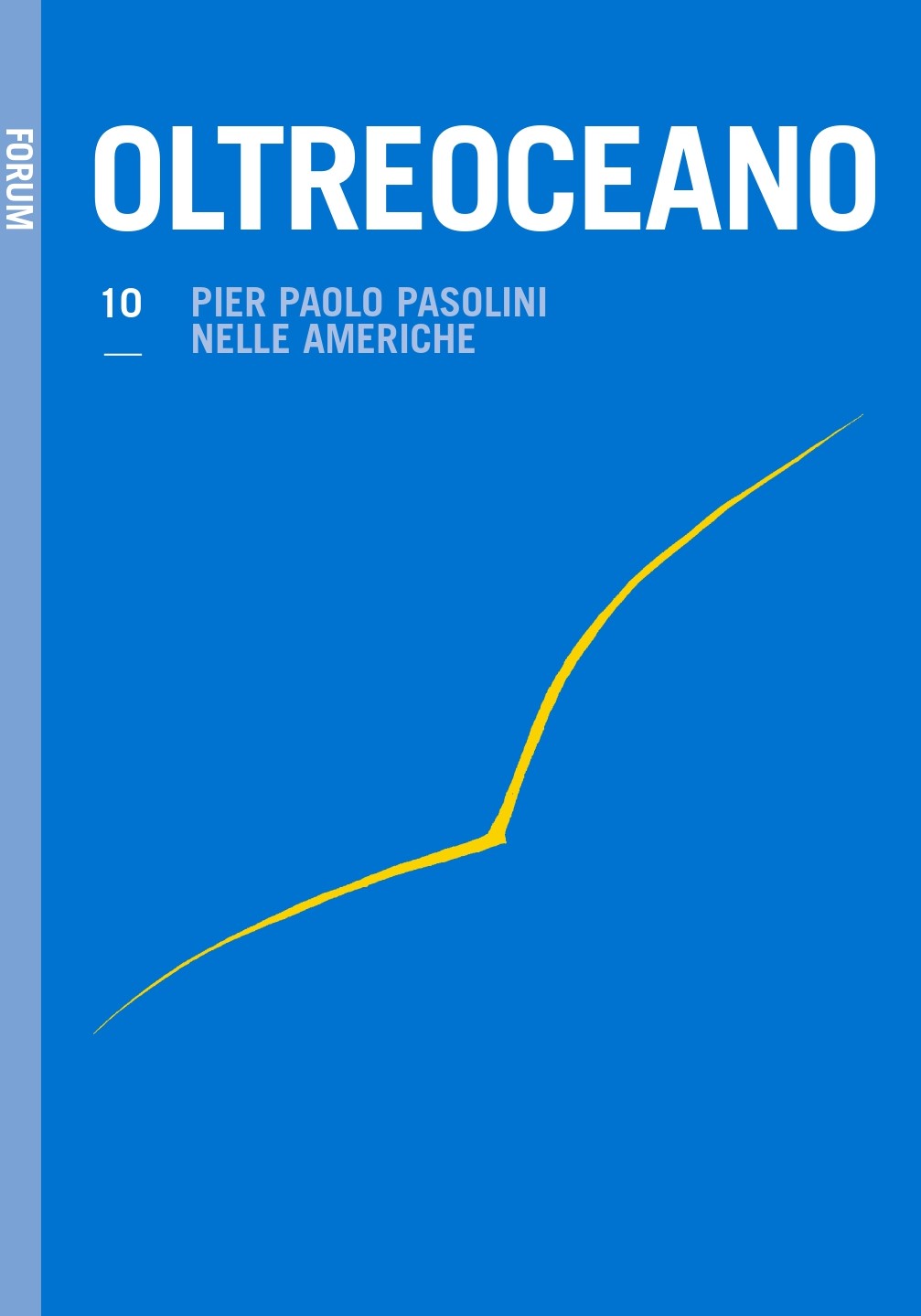«La pianta trapiantata, dalle radici scoperte»: diaspora transatlantica e presenze afroamericane nell’opera di Pasolini
Keywords:
Pier Paolo Pasolini, Africa, America, diaspora afroamericaniAbstract
La rappresentazione dell’Altro e delle classi subalterne, l’interesse per le lotte e i processi di decolonizzazione, il terzomondismo, il sogno africano e la visione di un non circoscrivibile Panmeridione sono elementi centrali dell’opera di Pasolini, che è costellata di riferimenti all’Africa, agli africani e alla loro diaspora. Ma accanto a un’immagine ‘essenzializzata’ e ‘conservatrice’ dell’Africa, radicata nel continente e atta a preservare la sacralità della poesia e dell’universo popolare, Pasolini concepisce anche, avanti coi tempi, un’africanità diasporica, altamente influenzata dalle grandi migrazioni, dalla tratta transatlantica e dai movimenti per i diritti civili degli afroamericani.
«The Transplanted Plant with Uncovered Roots»: Transatlantic Diaspora and African-Americans in Pasolini’s oeuvre
The representation of subaltern classes and the ‘other’, the decolonization struggles, the ‘Third World’, the ‘African dream”, and the vision of a never-ending Pan-South are crucial elements in Pasolini’s work, which is studded with references to Africa and African diaspora. Besides an ‘essentialized’ and ‘conservative’ image of Africa, one that is rooted in the continent and meant to preserve poetry, the sacred and the popolare, Pasolini conceived, ahead of his times, diasporic images of Africa and Africans that were highly influenced by mass migrations, the transatlantic slave trade, and the African-American civil rights movement in the 1960s.
Downloads
References
Caminati, L. (2007): Orientalismo eretico. Pier Paolo Pasolini e il cinema del Terzo Mondo. Milano: Mondadori.
Chiesi, R. (Ed.) (2011): L’Oriente di Pasolini. Il fiore delle Mille e una notte nelle fotografie di Roberto Villa. Bologna: Cineteca di Bologna.
Clifford, J. (1997): Routes: Travel and Translation in the Late Twentieth Century. Cambridge / London: Harvard University Press.
Cohen, R. (1997): Global Diasporas: An Introduction. Seattle: University of Washington Press.
De Andrade, M. & Sainville, L. (Eds.) (1961): Letteratura negra, I-II. Roma: Editori Riuniti.
Fortini, F. (1993): Attraverso Pasolini. Torino: Einaudi.
Gilroy, P. (1993): The Black Atlantic: Modernity and Double Consciousness. London, New York: Verso.
Hall, S. (1990): Cultural Identity and Diaspora. In J. Rutherford (Ed.), Identity, Community, Culture, Difference (pp. 222-237). London: Lawrence & Wishart.
Pasolini, P. P. (1976): Frammento alla morte. In P. P. Pasolini, Le poesie. Le ceneri di Gramsci, La religione del mio tempo, Poesia in forma di rosa, Trasumanar e organizzar, Poesie inedite (pp. 303-305). Milano: Garzanti.
Downloads
Published
How to Cite
Issue
Section
License

This work is licensed under a Creative Commons Attribution-NonCommercial-ShareAlike 4.0 International License.
The authors undertake to comply with the following conditions, which are considered accepted at the time of submission of their contributions.
The sending of a text implies that it is unpublished and not submitted to be published elsewhere.
1. If accepted, the author shall confer on the publisher the right to publish and distribute it both in paper form and in the online electronic edition. The published articles will be downloadable and made available in open access.
2. Provided that it correctly indicates that the first publication took place in the journal Oltreoceano. Rivista sulle migrazioni the author has the right to: a) reproduce the article in separate extracts or collected in a volume; b) publish the article on their personal website or teaching site provided that these sites are of a non-commercial nature; c) deposit the article in online archives of a non-commercial nature, linked to the institution they belong to or as part of projects for the non-commercial dissemination and open access of scientific works.
The use of contributions by third parties, for commercial or otherwise unauthorized purposes, is not allowed. The publisher declines all responsibility for the unauthorized use of the material published in the journal.












